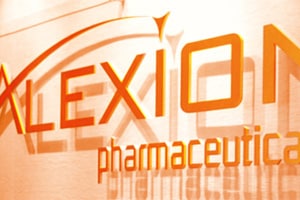 More babies with the rare and life-threatening disease paediatric-onset hypophosphatasia (HPP) will be able to get access to Alexion’s Strensiq therapy, thanks to a new access deal with the National Institute for Health and Care Excellence (NICE).
More babies with the rare and life-threatening disease paediatric-onset hypophosphatasia (HPP) will be able to get access to Alexion’s Strensiq therapy, thanks to a new access deal with the National Institute for Health and Care Excellence (NICE).
New draft guidance from NICE means that the wider population of infants with HPP – not just those with the most severe form – will be eligible for treatment with Strensiq (asfotase alfa), an enzyme replacement therapy for the disease.
Strensiq became the first drug approved to treat HPP in 2015, throwing a lifeline to patients who typically suffer a myriad of symptoms including bone weakening, chronic pain, life-threatening respiratory and renal complications and seizures.
There are up to seven cases of HPP diagnosed every year in England, and in severe cases infants die within the first year. Despite the severity of the condition NICE balked at making the drug available to all patients because of the drug’s high price – around £367,000 per year for an average-weight infant.
Having rejected it outright in 2015, the cost-effectiveness watchdog excluded two patient groups in its final determination published earlier this year – giving the go-ahead only for perinatal- and infantile-onset HPP and excluding juvenile-onset patients.
NICE’s change of heart “follows an improved deal including a five-year managed access agreement between NHS England and the company, which reduces the cost of the drug to the NHS and enables people with the highest unmet need to be identified”, said a spokesman for Alexion Pharma UK.
NICE said Strensiq represents a ‘step-change’ in the management of the condition, and “offers a ‘lifeline’ for people that could enable them to have a good quality of life but without which, they would not survive”.
Alexion acquired Strensiq in 2012 when it bought Enobia for $610m upfront, and the drug has grown steadily to reach $210m in sales last year, reducing the ultra-rare disease specialist’s reliance on its primary product Soliris (eculizumab), its $2.8bn treatment for atypical haemolytic uraemic syndrome (aHUS).
NICE also turned down Alexion’s other new enzyme replacement product – £500,000 per year Kanuma (sebelipase alfa) for lysosomal acid lipase deficiency (LAL-D) – earlier this year.




